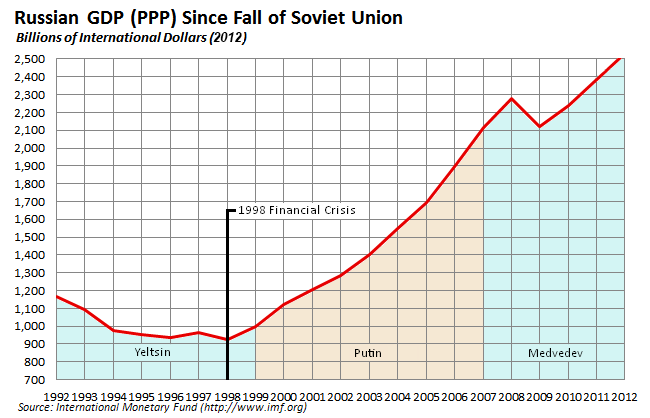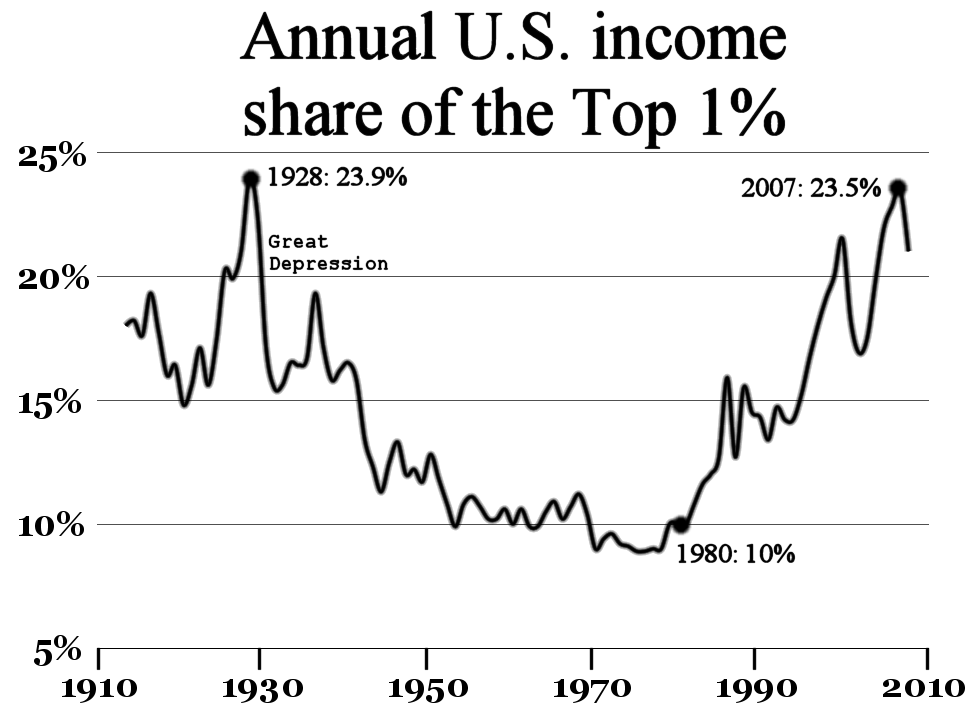1. Russian inflation is extremely high, which means that bond prices have to be higher to account for that.
You have this backwards. Higher interest rate means the bond price is lower.
Anyway, the credit rating and the interest rate are completely separate. You can have an A+ bond that pays 10%, and you can have a B- bond that pays 5%. The interest rate on US government bonds was much higher in 1990 than it is right now. Does that mean our credit rating was terrible in 1990? Of course not. Our financial position was much stronger in 1990 than it is right now. Also, inflation doesn't factor into this because bonds are not restricted to one currency. Russia issues bonds in US dollars, as do most other countries. Russia also issues bonds in euros. The interest rates will be different for each currency. Poor/corrupt countries tend to issue most of their bonds in US dollars because nobody trusts the local currency. I certainly wouldn't lend money to the Russian government unless it were denominated in dollars or euros.
2. Russia does not have a credible and independent central banking system.
It doesn't matter. What matters is their government's ability to pay back the loan.
3. Russia is not viewed as having a particularly stable or credible government.
Russia has a fairly good track record of stable governments. They're almost always dictatorships, but they're stable. I think Italy and Greece are much closer to a revolution than Russia is.
4. Russia does not have a well diversified economy.
The entire state of Texas is based on oil, but Texas seems relatively stable.
5. Russian economic growth appears to have collapsed and they are experiencing mass capital flight.
True, but that doesn't change the fact that Russia's main industry is natural resources. As long as the world needs oil and coal, Russia will have customers. Canada's economy is very similar in that regard. The time to start worrying about Russia's ability to pay back debt would be when their debt to GDP starts going up at a rapid pace.
You guys have been saying that for about half a decade now. When can we expect this bond crisis?
It'll happen when a rival currency overtakes the US dollar. We're starting to see this with American companies. McDonalds is already raising capital by issuing "dim sum bonds" - bonds issued in yuan instead of dollars. It also doesn't inspire confidence when our own central bank holds several trillion dollars of bonds. Why would our central bank feel the need to buy our own bonds? It's because there are not enough buyers at the current interest rate. You're saying there's no bond crisis because interest rates are not rising, which is true, but you're ignoring the fact that interest are manipulated by the fed. What happens if the fed stops printing money to buy bonds? The interest rates go up and we have a bond crisis. What happens if they keep printing trillions of dollars to suppress the interest rate? Then we have a currency crisis. They've painted themselves into a corner on this one.
This starts to get fun when you try to predict what kind of crisis is coming. The more optimistic people are betting on a deflationary collapse, which means the fed would allow the interest rates to rise and force the government to start slashing things like the military and medicare. This is the optimistic view because it doesn't destroy the currency. People who have money in the bank saved for retirement would still have money in the bank.
I'm on the inflationary side. History has shown that governments always try to print their way out of trouble. Even the ancient Romans tried this by replacing precious metal coins with base metal coins. As you can guess, it failed, just like every other currency debasing scheme in history. This is the pessemistic view because the value of currency is destroyed in the process. Cash in the bank is suddenly worthless. Pensioners are and people invested in bonds are completely wiped out when this happens.
I will add one exception to what I previously said about wars. Building tanks and bonbs is good for the economy if we are
selling them to the people fighting the war.
This (digging holes to fill them) is in fact a straw man. They say that in a deeply depressed economy with mass labor resources sitting idle, that if your alternative was doing nothing, that doing such a thing would be better.
This is where I would say the Keynesians are wrong. What do humans naturally do when they don't have a job and can't find a job? They try to create jobs, sometimes called jerbs. Even I did this as a kid. I had a lemonade stand. I mowed lawns in summer, I picked up leaves in fall, and I shoveled snow in winter. If I wanted money, and being a jerb creator was the only option, that's what I did. What do you think would happen if the government stepped in and started some kind of war effort? Working for the government's war effort would probably pay better than raking leaves, so I would work for the government. I would be making bullets and painting trucks. It's true that I'm no longer considered slack in the economy, but at what cost? If left to my own devices to create my own job, I was actually adding value to my neighborhood when I shoveled snow or raked leaves. If I'm painting trucks just so they can be destroyed, I'm not adding any value to anything. Nobody looks at a destroyed truck and stops to admire the pain job on it. In the wonderful world of economics, this is called "crowding out". In addition to removing my desire to create my own job, the war effort negatively affects other parts of the economy by raising capital costs. Example: oil tends to get expensive during war, or it's rationed. What does that do to my business or someone else's business if our businesses rely on oil? Does it discourage people from going to the mall? Does it affect commerce? Does it force companies to have pay freezes to make up for the added capital costs? Would food places stop delivering to my door? Does that mean I buy fewer pizzas?
You're saying slack in the economy is worse than capital misallocation, and I disagree with that position. What happens when the war effort eventually ends? We're right back where we started. I'm no longer painting army trucks, so I'm unemployed again, as are thousands of other people. Of course, that war effort wasn't free, so now the people who have jobs see higher taxes, this lowers discretionary spending, and we see modern day America - retail apocalypse, Staples closing hundreds of stores, JC Penny bankrupt, etc. Again, this is called crowding out. Money that would normally go to retail spending is now going to the government.
Using the government to fix slack in the economy doesn't make the pie bigger. All it does is take capital from the productive parts of the economy and move it to the nonproductive parts of the economy (ie painting trucks that will be destroyed in less than a month). Or it could be Cash For Clunkers - destroying perfectly good used cars to encourage the purchase of a new car. They would literally destroy the engine of the clunker. That's a perfect example of Broken Window Keynesian economics. In case of bad economy, break a bunch of windows (or cars), hire people to fix them, then send to the bill to tax payers.





